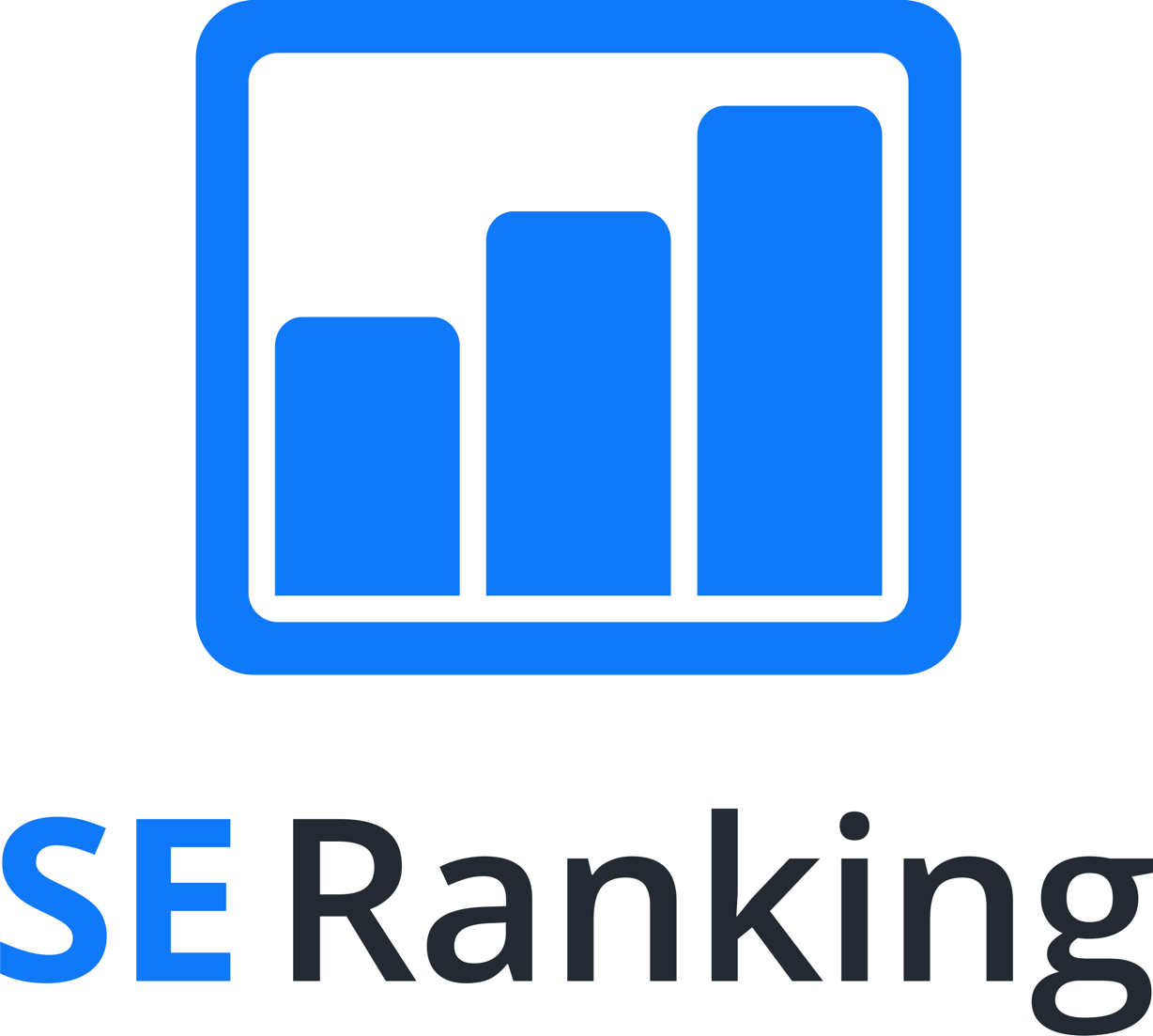Description

SEO PowerSuite

Site Analyzer
Comprehensive Overview: SEO PowerSuite vs Site Analyzer
SEO PowerSuite and Site Analyzer are both popular tools in the digital marketing industry, designed to assist with search engine optimization (SEO) efforts. Here’s a comprehensive overview of both:
a) Primary Functions and Target Markets
SEO PowerSuite:
Primary Functions:
- Rank Tracker: Monitors keyword rankings across multiple search engines and tracks SEO progress over time.
- SEO SpyGlass: Conducts backlink analysis to help understand competitors' link-building strategies.
- Website Auditor: Performs comprehensive site audits to identify technical and on-page SEO issues.
- LinkAssistant: Aids in link building by finding potential link partners and managing outreach campaigns.
Target Markets:
- SEO Agencies and Consultants: Due to its comprehensive set of tools, agencies and individual consultants can benefit from its flexibility and depth.
- In-house Marketing Teams: Companies of various sizes utilize it for managing the SEO aspect of their digital marketing strategies.
- SMEs and Freelancers: The affordability and breadth of tools also make it accessible for smaller businesses and freelance marketers.
Site Analyzer:
Primary Functions:
- Website Analysis: Provides detailed insights into technical, content, and backlink aspects of a website.
- On-page Optimization: Offers recommendations for improving on-page SEO, including meta tags, content quality, and user experience.
- Rank Tracking: Allows users to track their keyword rankings to measure SEO performance.
- Backlink Analysis: Evaluates backlink profiles to understand the authority and health of external links.
Target Markets:
- Small to Medium-sized Businesses (SMBs): The tool’s simplicity and affordability make it suitable for SMBs with limited SEO knowledge or resources.
- Digital Marketing Professionals: Individuals or small teams looking for straightforward and actionable SEO insights.
- SEO Beginners: The easy-to-use interface is also beneficial for those new to SEO wanting to improve their understanding and skills.
b) Market Share and User Base
SEO PowerSuite:
- SEO PowerSuite has been in the market for a longer period, giving it a more established user base. It is known for its robust features and has a significant presence amongst SEO professionals, agencies, and freelancers.
- Its comprehensive toolset makes it popular in environments where detailed analytics and SEO strategizing are essential.
Site Analyzer:
- While newer and smaller compared to SEO PowerSuite, Site Analyzer has been gaining traction, particularly among SMBs and users looking for ease of use over complex functionality.
- Its user base is smaller, but it appeals to users who need more straightforward and quick fixes to their SEO queries.
c) Key Differentiating Factors
SEO PowerSuite:
- Comprehensiveness: Offers an extensive array of tools covering all aspects of SEO, which can be quite advantageous for users needing in-depth analytics and strategic planning.
- Customization: Its reports and data analytics are highly customizable, making it attractive for agencies needing to cater to diverse client requirements.
- Pricing: Offers a one-time license fee model, which can be seen as a cost-effective option over time for heavy users.
Site Analyzer:
- User-Friendly Interface: Known for its intuitive and easy-to-navigate interface, it allows even users with limited SEO knowledge to work efficiently.
- Simplicity and Speed: Provides quick, actionable insights and recommendations, leaning more towards users who prefer straightforward analysis.
- Subscription Pricing: Operates on a subscription-based pricing model, which may be more feasible for smaller businesses or those looking for short-term commitments.
In summary, while both SEO PowerSuite and Site Analyzer are valuable SEO tools, they serve different needs based on the scope of work, user experience preferences, and budget considerations. SEO PowerSuite often appeals to users looking for depth and comprehensiveness, whereas Site Analyzer is preferred by those who value simplicity and rapid insights.
Contact Info

Year founded :
2005
+375 44 776-14-16
Not Available
Cyprus
http://www.linkedin.com/company/seopowersuite

Year founded :
2011
+1 201-479-9022
Not Available
France
http://www.linkedin.com/company/site-analyzer
Feature Similarity Breakdown: SEO PowerSuite, Site Analyzer
When comparing SEO tools like SEO PowerSuite and Site Analyzer, it's important to consider the features that each platform offers, how they assist in improving website performance and search engine rankings, and the usability of their interfaces. Here's a breakdown of these aspects:
a) Core Features in Common:
-
Keyword Research and Analysis:
- Both SEO PowerSuite and Site Analyzer offer tools for finding relevant keywords, analyzing their competitiveness, and tracking keyword rankings over time. This is essential for optimizing website content to rank higher in search engine results.
-
Site Audit:
- They provide comprehensive site audit capabilities to identify technical SEO issues such as broken links, duplicate content, and page speed issues. Regular audits help maintain a website's health in terms of SEO compliance.
-
Backlink Analysis:
- Both platforms offer backlink checking and analysis features. Users can evaluate their own backlink profiles and that of their competitors, helping to strategize better link-building campaigns.
-
Competitor Analysis:
- These tools allow users to analyze their competitors' online strategies, including keyword and backlink strategies, which is crucial for staying ahead in competitive markets.
-
Reporting:
- They provide customizable SEO reports that can be scheduled and shared with clients or team members. Reports typically include keyword rankings, site health, and traffic metrics.
b) User Interface Comparison:
-
SEO PowerSuite:
- Generally known for its comprehensive desktop applications, SEO PowerSuite may feel more robust or complex to some users. Its UI is feature-rich, offering a lot of data and customization options. This can be an advantage for experienced SEOs but might be overwhelming for beginners.
-
Site Analyzer:
- Site Analyzer tends to have a more modern, streamlined, and intuitive web-based interface. It is designed to be user-friendly, which can make it accessible for users with varying levels of SEO expertise. The layout is generally more straightforward, focusing on ease of navigation and a cleaner look.
c) Unique Features:
-
SEO PowerSuite:
- Desktop Application: Unlike many other SEO tools, SEO PowerSuite offers a desktop-based solution, which allows processing large amounts of data without relying heavily on cloud-based resources.
- Rank Tracker: It provides one of the most detailed rank-tracking tools, with features like SERP history and geo-specific rankings.
- LinkAssistant: A unique link-building tool that facilitates finding potential link partners, managing outreach campaigns, and keeping track of acquired backlinks.
-
Site Analyzer:
- Real-time Analytics: Offers more real-time data updates, giving users up-to-the-minute performance insights.
- Simplicity and Speed: Known for rapid site audits and quicker data processing compared to some more complex, bulkier tools.
- Email Alerts: Site Analyzer provides email alerts for site performance changes, which can be crucial for staying updated without actively checking the tool.
In summary, both SEO PowerSuite and Site Analyzer provide essential SEO tools that cater to different preferences and needs. SEO PowerSuite stands out with its comprehensive desktop-based approach and in-depth, customizable features, which may appeal to advanced users. In contrast, Site Analyzer is geared towards ease of use, quick audits, and real-time updates, making it suitable for those who prioritize simplicity and speed. The choice between them would ultimately depend on the user's level of expertise and specific requirements.
Features

Comprehensive Keyword Research
Effective Rank Tracking
Detailed Backlink Analysis
Site Audit and Optimization
Social Media and Local SEO

Site Performance
Competitor Analysis
Keyword Analysis
Backlink Tracking
Best Fit Use Cases: SEO PowerSuite, Site Analyzer
When comparing SEO PowerSuite and Site Analyzer, it’s important to understand that each tool is designed to cater to different needs and scenarios. Here’s a breakdown of their best-fit use cases:
a) SEO PowerSuite:
Types of Businesses or Projects:
-
Medium to Large Enterprises:
- SEO PowerSuite is a comprehensive suite of tools offering extensive features, making it ideal for medium to large businesses that have diverse SEO needs.
- These businesses often require detailed SEO analysis, reporting, and strategy implementation which SEO PowerSuite handles well.
-
In-House SEO Teams and Agencies:
- The breadth of tools in SEO PowerSuite caters to professionals needing deep-diving tools for multiple client accounts or complex SEO strategies.
- It’s ideal for agencies that require white-label reporting, automation of routine tasks, and handling a large volume of data.
-
Technical SEO Projects:
- The software suits projects requiring comprehensive technical SEO audits and advanced site analytics.
- It includes tools like Website Auditor for an extensive audit of deep technical issues.
Scenarios Where It's the Best Choice:
- When a business requires a robust toolset for competitor analysis, rank tracking, and backlink research.
- Projects that need frequent, detailed reporting and customized SEO solutions.
- Businesses focusing on long-term SEO strategy development with a need for tools that integrate well and provide consistent updates.
b) Site Analyzer:
Scenarios Where It’s the Preferred Option:
-
Small to Medium-Sized Businesses (SMBs):
- Site Analyzer is simpler and more straightforward, appealing to SMBs or startups that need cost-effective solutions with essential features.
- It's also suitable for businesses with a single website looking for basic to intermediate SEO insights.
-
Basic SEO Needs:
- Best suited for projects where the primary requirement is to monitor basic site health, performance tracking, and immediate SEO improvements.
- Companies that don't need complex features but value user-friendliness and quick insights will find this appealing.
-
Less Technical Insight Required:
- Ideal for users who prioritize ease of use and don’t need extensive technical SEO features.
- Site Analyzer provides a good overview and intuitive reports for users wanting less complexity.
d) Catering to Different Industry Verticals or Company Sizes:
Industry Verticals:
- SEO PowerSuite: Better adapted for industries where competition is fierce, such as e-commerce, finance, and technology, providing the tools necessary for deep competitor insights and extensive keyword research.
- Site Analyzer: Often used in industries like local businesses, education, and non-profits where basic SEO management with clear deliverables suffices.
Company Sizes:
- SEO PowerSuite: Scales effectively across various company sizes but especially shines for larger enterprises due to its comprehensive suite and capacity to handle extensive data and large-scale campaigns.
- Site Analyzer: Fits smaller businesses or individual website owners/startups that need fewer features but still require a reliable SEO tool.
Both tools serve different niches and needs. SEO PowerSuite excels in providing a full-range toolset for those needing in-depth and advanced analytics, while Site Analyzer is tailored for users who prefer simplicity and ease of use, with sufficient features to maintain solid SEO performance.
Pricing

Pricing Not Available

Pricing Not Available
Metrics History
Metrics History
Comparing teamSize across companies
Conclusion & Final Verdict: SEO PowerSuite vs Site Analyzer
Conclusion and Final Verdict: SEO PowerSuite vs Site Analyzer
When evaluating SEO PowerSuite and Site Analyzer, it's important to consider your specific needs, budget, and technical expertise. Both tools offer robust features that cater to different aspects of SEO, but they come with distinct strengths and weaknesses.
a) Which Product Offers the Best Overall Value?
SEO PowerSuite provides the best overall value for professionals and businesses that need comprehensive and scalable SEO solutions. Its feature-rich suite includes tools for rank tracking, site auditing, backlink analysis, and more, which are essential for executing advanced SEO strategies. Additionally, SEO PowerSuite offers a one-time license fee with optional yearly updates, which can be cost-effective in the long run for agencies and larger teams.
b) Pros and Cons
SEO PowerSuite:
-
Pros:
- Comprehensive set of tools for all aspects of SEO.
- Detailed reporting capabilities.
- Scalable solutions suitable for agencies and large businesses.
- One-time purchase with optional updates, potentially saving costs over time.
-
Cons:
- Desktop-based software, which may feel outdated compared to cloud-based options.
- Requires installation and may not be as convenient for remote teams.
- Learning curve for beginners due to feature depth and complexity.
Site Analyzer:
-
Pros:
- Cloud-based platform, providing easy access from anywhere.
- User-friendly interface suitable for beginners.
- Quick and efficient for site audits and keyword tracking.
- Affordable subscription plans catering to small to medium businesses.
-
Cons:
- Limited feature set compared to comprehensive suites like SEO PowerSuite.
- May not scale as efficiently for larger enterprises or agencies.
- Insights and customizations may be less advanced.
c) Recommendations for Users
-
For Beginners or Small Business Owners: If you are new to SEO or run a small business, Site Analyzer might be more appealing due to its ease of use, cloud-based accessibility, and affordable pricing plans. It's a good fit for users who need straightforward solutions for site audits, keyword tracking, and basic SEO improvements.
-
For SEO Professionals and Agencies: SEO PowerSuite is ideal if you're looking for a powerful toolset to handle complex SEO tasks and manage multiple projects. Its comprehensive analytics and reporting features are well-suited for detailed insights and strategic planning, making it a better choice for larger teams or agencies with diverse and demanding SEO needs.
Ultimately, the decision between SEO PowerSuite and Site Analyzer should be based on the specific requirements of your SEO initiatives, your budget, and your preference for either a cloud-based or desktop solution.
Add to compare
Add similar companies



